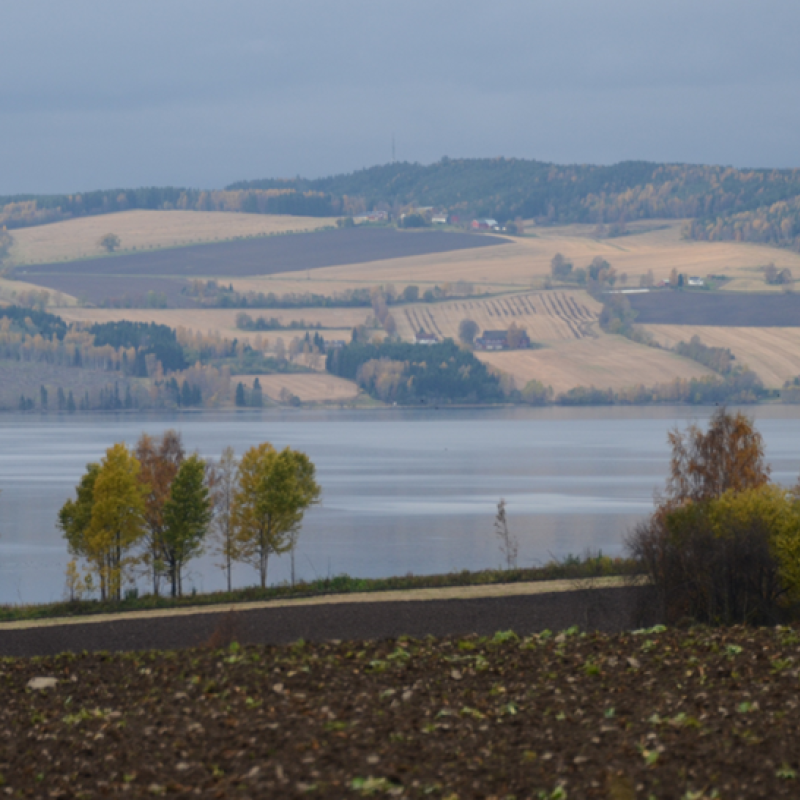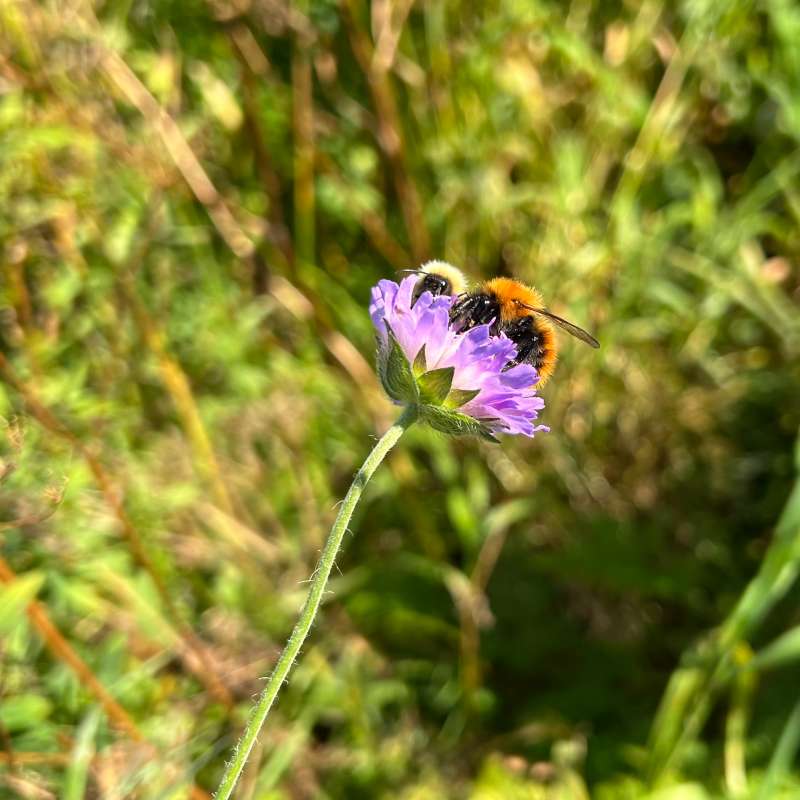Valborg Kvakkestad
Forsker
(+47) 481 32 706
valborg.kvakkestad@nibio.no
Sted
Ås - Bygg O43
Besøksadresse
Oluf Thesens vei 43, 1433 Ås (Varelevering: Elizabeth Stephansens vei 21)
Forfattere
Valborg Kvakkestad Kristian Olai Berg Annbjørg Kristoffersen Einar Strand Simen Wilsher-LohreSammendrag
Formålet med rapporten har vært å undersøke hvordan kornprodusenter vurderer fordeler og ulemper med å produsere høsthvete for mat og fôr og å undersøke andelen av høsthvete som tilfredsstiller matkvalitet og hva som er viktige årsaker til nedklassifisering av høsthvete. Kornprodusentenes vurderinger ble undersøkt ved å gjennomføre en spørreundersøkelse til et representativt utvalg av høsthvetedyrkere. Resultatene fra spørreundersøkelsen viser at siste tre år (2020-2023) hadde 46 prosent planlagt hele høsthvetearealet for å oppnå matkvalitet, mens 23 prosent hadde planlagt hele arealet for å produsere fôrhvete. De resterende hadde planlagt for begge deler. Høsthveteprodusentene vurderte at behovet for å gjøre ting til rett tid og at nitrogen gjødsling og arbeidsinnsatsen per deker er noe høyere ved å sikte mot matkorn for høsthvete. Lønnsomheten (uten arbeidsinnsats) ved å dyrke høsthvete for å oppnå matkvalitet ble vurdert som høyere enn ved å dyrke til fôr av 64 prosent av respondentene. 23 prosent vurderte det som omtrent likt og 13 prosent vurderte at lønnsomheten var bedre ved å dyrke til fôr. Andelen av høsthvete som tilfredsstiller matkvalitet og hva som er viktige årsaker til nedklassifisering av høsthvete ble beregnet ved å sammenstille data for leveranser av høsthvetematsorter fra kornprodusenter til kornkjøper. I perioden 2014-2022 har 70 % av leveransene blitt klassifisert som mathvete. Regionale forskjeller var tydelige, med høyest andel mathvete i Ytre Østfold og lavest i Hedmark/Oppland (eksklusive Hedmarken og Østre Toten). I samme periode tilfredsstilte 75 % av leveransene proteinkravet, 97 % falltallskravet og 95 % kravet til hektolitervekt. For lavt proteininnhold har vært hovedårsak til nedklassifisering i alle regioner, med unntak av Trøndelag hvor lavt falltall var like viktig som lavt protein. Det var særlig i 2014 og 2015 at protein var en stor utfordring for å oppnå matkvalitet.
Sammendrag
Denne rapporten presenterer resultat fra en spørreundersøkelse blant gardbrukere i Valdres, Nord-Østerdalen og Røros. Formålet har vært å undersøke framtidsplaner for utmarksbeiting og setring, hva som påvirker disse planene, og hva som kjennetegner gardbrukernes situasjon. De aller fleste ønsket å fortsette med utmarksbeiting. Viktige årsaker til å slutte med utmarksbeiting inkluderte låg lønnsomhet i gardsdrifta og uforutsigbare politiske rammevilkår. For bruk som har vært rammet av store rovviltskader, var rovvilt hovedårsaken til å slutte med utmarksbeiting. Undersøkelsen viste at flere planla å slutte med seterdrift, i hovedsak fordi de planla å avslutte mjølkeproduksjonen. Båsfjøs og lite jordbruksareal økte sjansene for å slutte med mjølk, og svak lønnsomhet ved fornying av driftsapparatet var den viktigste grunnen til å slutte. Å opprettholde små og mellomstore mjølkebruk er derfor viktig for framtidig seterdrift. De i gjennomsnitt største utfordringene for utmarksbeiting var gjengroing, løshunder og få beitebrukere. I enkelte kommuner ble freda rovvilt og hyttebygging pekt på som hovedproblemer. Dersom man ønsker å opprettholde eller øke utmarksbeiting, er det nødvendig med virkemidler som tar tak i stedsspesifikke utfordringer. Prosjektet peker særlig på behovet for målretta tiltak for utmarksbeiting og setring som styrker lønnsomheten og reduserer usikkerheten knyttet til politiske rammevilkår.
Forfattere
Ffion Evans James Gibbons Luciana Bava Dave Chadwick Stefania Colombini Valborg Kvakkestad Lampros Lamprinakis Vibeke Lind Martina Pavesi Prysor Williams Sophie Wynne-JonesSammendrag
Det er ikke registrert sammendrag

SBEP - DORIS, Development of Modular and Mobile By-Product and Wastes Bio-refiney Valorisation Systems and Supporting Structures for Fisheri
.jpg?quality=60)
Divisjon for matproduksjon og samfunn
Cultivating sustainable changes in livestock feed production and feeding practices (Feed&Feeding)
The project will evaluate various strategies for feed production and feeding practices to enhance the sustainability of Norway's food system and support national agricultural policy goals. These strategies include adjusting livestock diets, improving breeding and animal health, and introducing new protein sources for feed. The project will assess environmental impacts, such as land use changes, greenhouse gas emissions, soil carbon levels, nutrient balances, and biodiversity, as well as socioeconomic impacts, including food security, economic and social sustainability, and the viability of rural communities.

Divisjon for matproduksjon og samfunn
Agricultural mitigation measures and the value of water quality improvements
Agriculture is one of the main sources of water pollution in Norway, and an important contributor to GHG emissions.

Divisjon for matproduksjon og samfunn
Tiltak i landbruket og verdien av forbedret vannkvalitet
Landbruket er en av de viktigste kildene til vannforurensing i Norge, og samtidig en stor bidragsyter til klimautslipp.

Divisjon for matproduksjon og samfunn
WINGS - Pollinatorvennlige kulturlandskap: Løsninger for forvaltning av leveområder under press
Pollinatorene er truet. Dette får konsekvenser både for det biologiske mangfoldet og matsikkerheten vår. I WINGS skal vi utvikle løsninger for å etablere mer pollinatorvennlige kulturlandskap.
